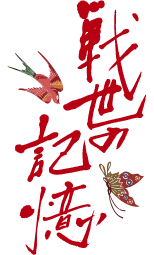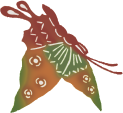
Escape through Philippine mountains
Escape through Philippine mountains
Name: Kiyo Miyazato (28宮里キヨ)
Date of birth: November 1912, 33 years old at the time, housewife
We relocated to one island of Philippine to cultivate land. We were the first Japanese pioneers to arrive there.
We cleared the land and planted hemp, but before we could harvest it, the war started. Once the war started, we took our children and escaped into the mountains. Once you enter into a mountain, the jungle makes you lose your sense of direction. Large trees had been marked previously, for just that reason. We relied on these markings and continued escaping, deeper into the mountains. These markings were probably placed there by people from the government.
We used the roots of a large tree, covered them with the leaves of a hemp tree and secured a living space.
We heard that the enemy troops were gradually approaching us, so we continued on deeper into the mountains. We saw people taken by the stream of a river that flows through the valleys, but we were unable to help them. Ropes were spanned across larger rivers, probably by Japanese troops. We crossed rivers, relying on such ropes. We crossed many rivers and relocated from one mountain to another, and continued with our escape.
We selected grass that grows in the mountains, which could be eaten, licking on salt and filling our mouths with grass. Japanese troops did not have food either and they were asking the Philippine residents if they had any food. There was no food to eat and the enemy was getting closer. Two Japanese soldiers approached us under such circumstances. By around that time we were more fearful of Japanese soldiers than enemy soldiers. In some instances, the Japanese troops pointed guns at us and stole our food. It could have been that the Japanese troops did not have any food and they had to do such a thing. I saw such soldiers lie down along the riverside and die. Most probably Yasajini (starved to death).
I encountered a colleague in the mountains. That colleague was exhausted and just sat there on the spot and told us to go ahead. I imagine that colleague probably died there at that spot. We were unable to help anyone, we could hardly help ourselves.
Then we heard announcements going around, telling us that Japan had been defeated, so we should not hide but instead go out there. So we happily left the mountains. Many Japanese were placed in the camp at Tamogan after that and were later repatriated.
I lost my daughter to malnutrition at the concentration camp. Many other people died in the concentration camp as well.
Name: Kiyo Miyazato (28宮里キヨ)
Date of birth: November 1912, 33 years old at the time, housewife
We relocated to one island of Philippine to cultivate land. We were the first Japanese pioneers to arrive there.
We cleared the land and planted hemp, but before we could harvest it, the war started. Once the war started, we took our children and escaped into the mountains. Once you enter into a mountain, the jungle makes you lose your sense of direction. Large trees had been marked previously, for just that reason. We relied on these markings and continued escaping, deeper into the mountains. These markings were probably placed there by people from the government.
We used the roots of a large tree, covered them with the leaves of a hemp tree and secured a living space.
We heard that the enemy troops were gradually approaching us, so we continued on deeper into the mountains. We saw people taken by the stream of a river that flows through the valleys, but we were unable to help them. Ropes were spanned across larger rivers, probably by Japanese troops. We crossed rivers, relying on such ropes. We crossed many rivers and relocated from one mountain to another, and continued with our escape.
We selected grass that grows in the mountains, which could be eaten, licking on salt and filling our mouths with grass. Japanese troops did not have food either and they were asking the Philippine residents if they had any food. There was no food to eat and the enemy was getting closer. Two Japanese soldiers approached us under such circumstances. By around that time we were more fearful of Japanese soldiers than enemy soldiers. In some instances, the Japanese troops pointed guns at us and stole our food. It could have been that the Japanese troops did not have any food and they had to do such a thing. I saw such soldiers lie down along the riverside and die. Most probably Yasajini (starved to death).
I encountered a colleague in the mountains. That colleague was exhausted and just sat there on the spot and told us to go ahead. I imagine that colleague probably died there at that spot. We were unable to help anyone, we could hardly help ourselves.
Then we heard announcements going around, telling us that Japan had been defeated, so we should not hide but instead go out there. So we happily left the mountains. Many Japanese were placed in the camp at Tamogan after that and were later repatriated.
I lost my daughter to malnutrition at the concentration camp. Many other people died in the concentration camp as well.


